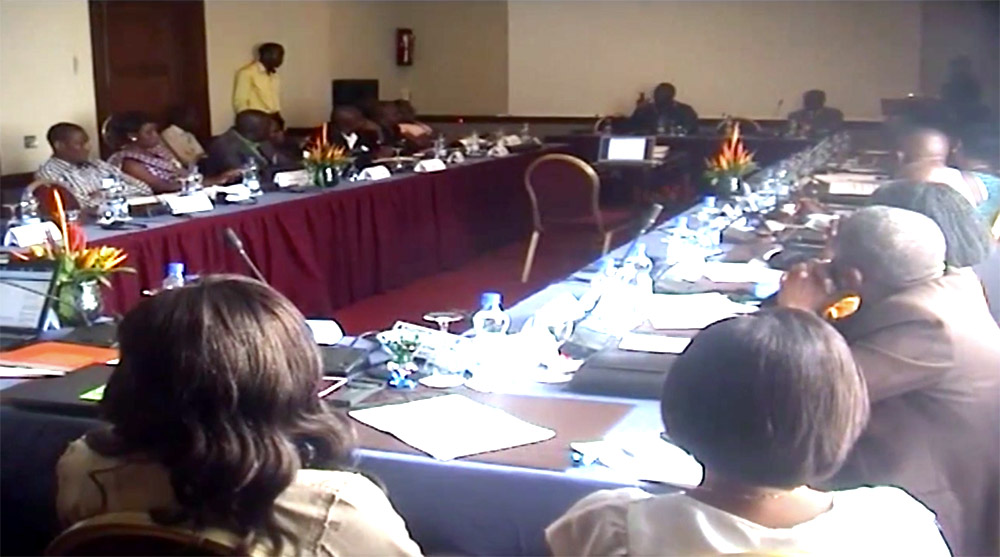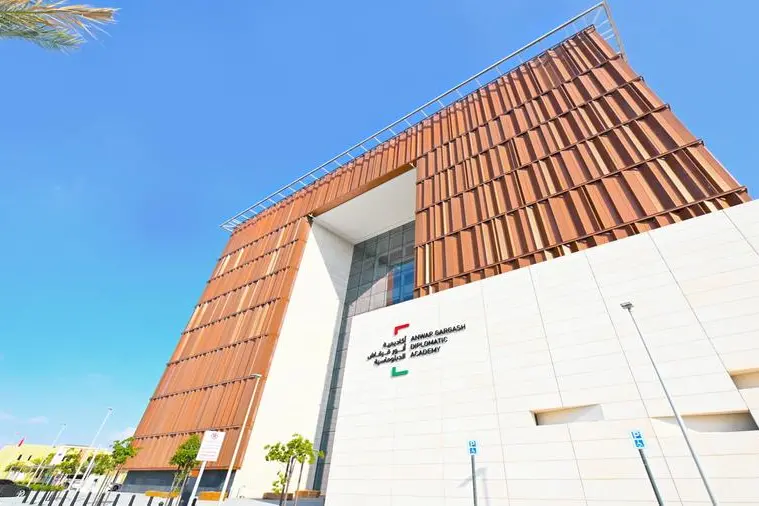As a member institution of the African Peace Support Trainers’ Association (APSTA), the Training for Peace in Africa Programme at ACCORD (TfP/ACCORD) has participated in the 11th Annual General Meeting, themed “Working together to improve the capacity for peace support operations in Africa: the role, contribution and opportunities for APSTA in supporting African Union (AU) responsibility in maintaining peace and security”.
The AGM was hosted by the Institute for Peace and Security Studies (IPSS) from 25-27 September in Addis Ababa, Ethiopia. Member institutions and partners represented included the Institute for Peace and Security Studies (IPSS); Impact for Change and Development (IMPACT); International Peace Support Training Centre (IPSTC); Institute for Security Studies (ISS); Kofi Annan International Peacekeeping Training Centre (KAIPTC); National Defence College Nigeria (NDCN); Southern African Development Community-Regional Peacekeeping Training Centre (SADC RPTC); The African Civilian Response Capacity for Peace Support Operations (AFDEM); Peace Operations Training Institute (POTI); UN Integrated Training Services (UNITS); and the AU Peace Support Operations Division (AU-PSOD). ACCORD’s TfP Programme was represented by Ms Seun Abiola, Peacekeeping Unit Coordinator.
APSTA is a crucial networking forum for the African peacekeeping training community, providing the African Union (AU) with multidimensional expertise on civilian, military and police dimensions from its pool of member institutions. The broad aim of the Association is to facilitate the development of African capacity for peace and security through coordination, advocacy, harmonisation and standardisation of training. Following the theme, the AGM provided an opportunity for discussions on Africa’s political security and challenges, AU strategies and as well as the role of APSTA in relation to the work of the member institutions towards capacity building for peace and support operations (PSOs) through training and research. The meeting featured a new format that focused on education and learning, along the lines of annual conferences of the International Association of Peacekeeping Training Centres (IAPTC) of which APSTA is the African chapter.
The TfP Programme’s engagement in the AGM reflected and reinforced ACCORD’s continuing support and its role within APSTA and the AU, particularly with regards to the civilian component of PSOs in the key areas of curriculum development, training analysis and delivery for current and future missions, including the African Standby Force (ASF). The AGM also gave an opportunity to receive an update on the APSTA Training Needs Analysis (TNA) commissioned by the AU on the various aspects of the AU PSOs needs and requirements.
Such engagement is in line with TfP/ACCORD’s specific objective to contribute to the improvement of civilian capacity for multidimensional and integrated PSOs in Africa, which includes assistance to the AU in their current missions, and the AU and Regional Economic Communities (RECs) in the development of the civilian structures of their standby forces and Planning Elements (PLANELMs), for operationalisation of the ASF by 2015. Also, noting that TfP/ACCORD’s role within APSTA has increased this year as it serves as the Civilian Chair and African representative in the 2013 Executive Committee of the IAPTC, the AGM will be utilised for the finalisation of preparations for the 2013 IAPTC Annual Conference, scheduled to take place from 28-31 October, in Dhaka, Bangladesh.
The Training for Peace Programme at ACCORD is an initiative funded by the Norwegian Ministry of Foreign Affairs.








